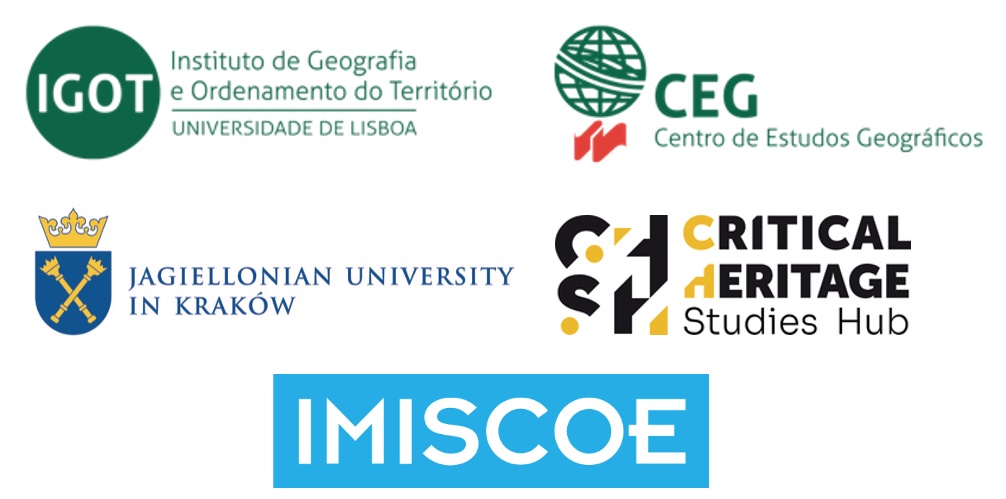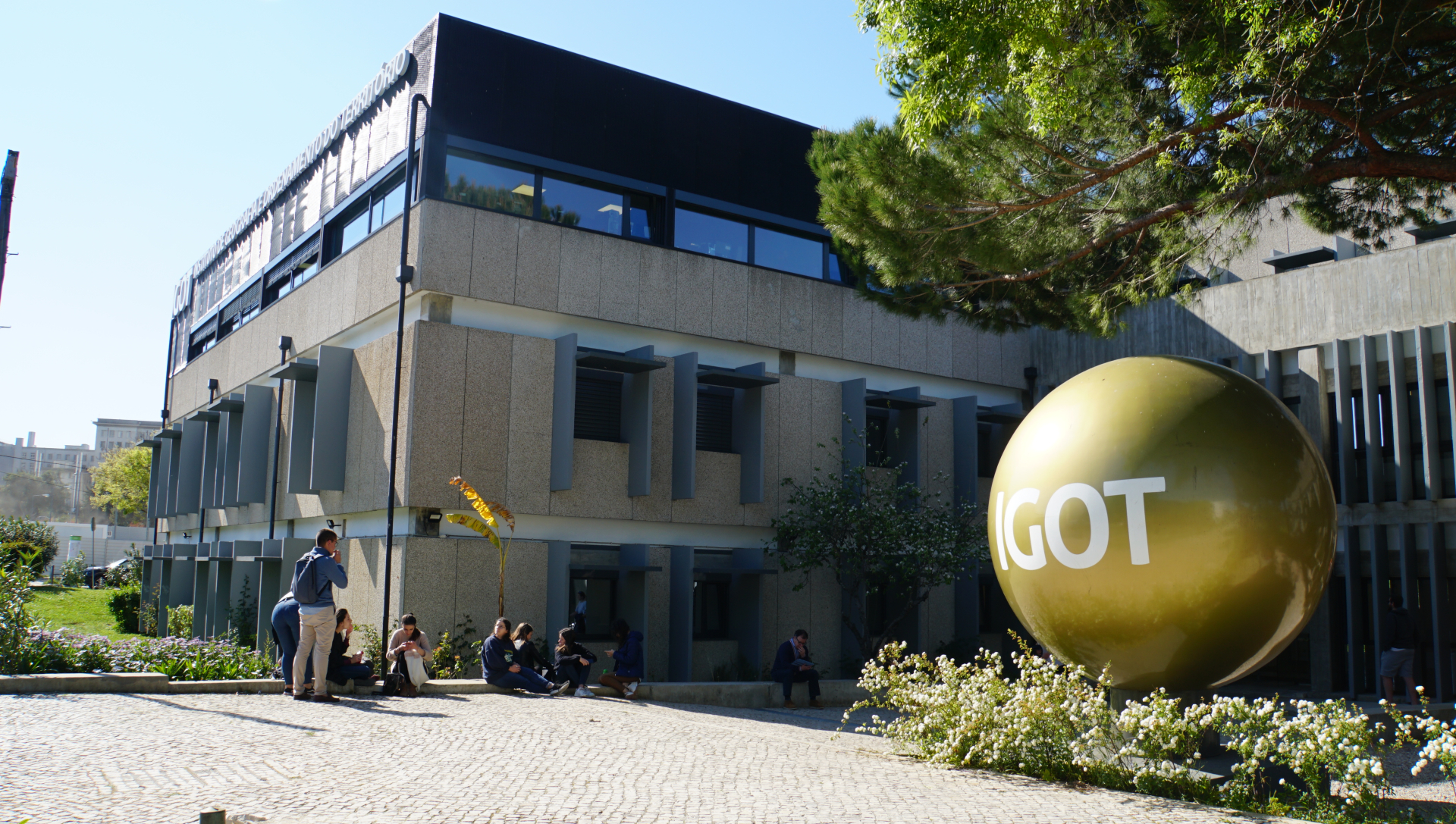Event organised by: the Institute of Geography and Spatial Planning (IGOT) at the University of Lisbon and the Critical Heritage Studies Hub at Jagiellonian University
Event location: The PhD school will take place at the Institute of Geography and Spatial Planning (IGOT) at the University of Lisbon.
Deadline for application submissions: 20 December 2024
Academic coordinators: Amandine Desille, postdoctoral researcher for the Re-Place project, IGOT-ULisboa and Karolina Nikielska-Sekuła, assistant professor, Institute of Intercultural Studies, Jagiellonian University, Kraków.
What will the 2025 edition of the IMISCOE PhD Summer School be about?
For the 2025 edition of the IMISCOE PhD school, we aim at training PhD candidates and early career researchers affiliated at institutions around the world to develop visual and sensory methodologies in migration research. We use the term “methodology” as we believe that visual and sensory projects ought to be embedded in a broader research project. Concretely, that means that participants will be encouraged to critically assess the theoretical, empirical, and ethical implications of their methodological choices.
In the training programme, we will focus on the use of four visual media to research the multisensory experiences of migration scholars and of the ones who have experienced migration, but also migration processes and policies. Those media are photography, film, cartography, and collaborative methods. In that sense, we propose establishing conceptual links between the intellectual and the sensorial, by designing research methodologies that do not omit the data coming from the multisensory experiences of doing visual research. The training also provides hands-on activities and good practices helping to rethink our research questions; get acquainted with the literature; combine visual methodologies with other modes of data collection - qualitative interviews, discussion groups, walk-alongs, observations, etc; expand our analytical toolbox; and potentially create visual and sensory outputs for dissemination.
Inter- and transdisciplinary in its focus, this IMISCOE PhD school channels the methodological knowledge developed within disciplines such as geography, anthropology, sociology, political science, and gender, sexuality and women’s study into a practical methodological approach, with a wide range of useful research tools adapted to the analysis of migration experiences, processes and policies. The aim is to provide a full package of knowledge on research planning using visual and sensory methods, including a critical analysis of the epistemological foundations of research methodology, the ontological status of produced and existing images, ethical manifesto, techniques for disseminating research conclusions and generating impact, and the selection of appropriate tools for collecting data.
pdf 2025 PhD School Flyer(1.29 MB)
Programme
The programme will be divided into three modules:
- theoretical (methodology, epistemology, ontology of images, ethics);
- a collective research project in Lisbon (creating a visual research project under the supervision of the trainers);
- development of individual research projects of the participants (planning, ethics, research methods and techniques, dissemination of results, impact).
These three modules that combine practical activities and plenary theoretical keynote lectures will be complemented by the training in four themed subgroups, each focusing on different media that can be employed in researching migration through visual and sensory tools.
Meet your trainers
Students will be divided into four working groups, each led by two trainers specialised in the method featured by the group:
|
Photography |
Karolina Nikielska-Sekuła (Jagiellonian University) Patricia Prieto-Blanco (Lancaster University) |
|
Film and visual storytelling |
Amandine Desille (IGOT at University of Lisbon) Nagehan Uskan (Humboldt University of Berlin, Off University) |
|
Cartography and map-making |
Lucie Bacon (Institut de Recherche pour le Développement, Paris) Franz Buhr (IGOT at University of Lisbon) |
|
Reimagining Knowledge Production Through Collaborative and Multimodal Approaches |
Kitti Baracsi (AFSEE Fellow, London School of Economics III, Associated Researcher, CRIA) Stefano Piemontese (Institute for Research into International Migration and Superdiversity, University of Birmingham) |
Enjoy exciting lectures, films’ projections and more
On top of the training component, participants will benefit from a series of lectures, such as:
- Epistemologies: a history of the visual, and other senses
- Working “with” people? Perspectives from visual researchers
- Ontological status of produced and existing images: from production to storytelling?
- Dissemination strategies
- Ethics in visual and sensory research
- Funding visual and sensory projects, and the importance of “Social Impact”, perspectives from the European Commission
Among those who have already confirmed their participation as guest lecturers are: Ilke Sanlier, Alice Salimbeni, and Magdalena Banaszkiewicz.
Social events are planned too:
- Welcome dinner
- Presentation of collaborative sensory works and discussion
- Projection of ethnographic films approaching migration/related topics
- Farewell drink
How to apply?
To apply, we kindly ask you to fill in this form.
Please prepare in advance:
- A 500-word-summary of your visual and/or multisensory work
- An explanation of your work relates with the proposed event
- A link to an online CV (it can be uploaded to the cloud and shared with us)
- In the form, we will also ask you to indicate in which working group you would like to participate and why
- Last, if you have financial requirements, you should indicate it in the form.
In case of doubts:
Maximum number of participants: 24
Schedule
The call for participation closes on December 20th 2024.
The decisions regarding acceptance will be communicated to the participants in February 2025.
Registration fees, waivers and grant programme
|
Participants from IMISCOE Member Institutes |
Participants from non-IMISCOE institutes |
|
|---|---|---|
|
in EU/OECD Countries |
100 |
150 |
|
in non-EU/non-OECD Countries |
0 |
50
|
We have launched a small grant programme for those who cannot afford their flights or their accommodation. If this is you, please inform us about specific financial barriers to your participation in the form. The number of grants is limited and those selected will be informed about funding in March 2025.



